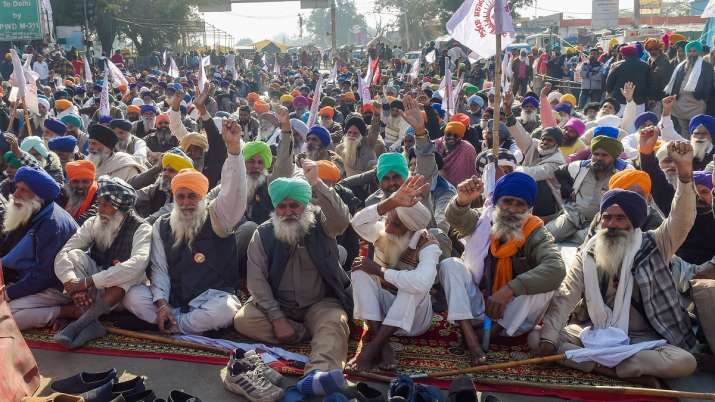Many critics say the BJP made a tactical blunder by rushing through its farm reforms without enough consultation and debate. They think a more inclusive, persuasive approach could have succeeded.
I disagree. Many differences are too deep to be settled by consultation — see the US standoff between Trump and Biden. India’s Supreme Court suspended farm laws and gave unlimited time for debate and all viewpoints. But the farm agitators refused debate or discussion with anyone, not even farm associations from Maharashtra and Andhra Pradesh that supported the reforms. The agitators simply used street power and stamina to get their way. They knew that determined farm agitations had succeeded in democracies across the world and reckoned, rightly, that India would be no different. To claim the farmers could have been won over by consultative approaches is naive.
Some critics favoured farm reforms but lambasted the BJP for violating democratic procedures and inclusive norms. The government issued ordinances instead of first debating the bills in Parliament. It failed to refer the proposed laws to a Joint Select Committee for conciliation, as Vajpayee did in his time.
I snigger at the notion that India normally has high procedural standards which the BJP short-circuited. Sorry, Indian political standards have long been terribly flawed. The procedures followed for the farm bill were no worse than in innumerable other cases.
I agree with critics that passing the bills by a voice vote in the Rajya Sabha was undesirable. But even if it had been passed by a regular vote, it would have made no difference. The farmers, incidentally, cared nothing for procedure, flouting laws prohibiting the burning of crop stubble which kills thousands with smoke pollution.
Hundreds of laws have routinely been passed for decades by central and state governments with little or no debate. This is not authoritarianism. Opposition parties prefer disruption and dharnas to debate, making normal legislative functioning impossible. All parties are guilty of this. You could call this a rare consensus!
Assembly disruptions became so chronic in Bihar in the 1970s that all new laws were issued as ordinances. These required conversion into formal laws by the next legislative session. That proved impossible because of Opposition disruption, so the ordinances lapsed. But identical fresh ordinances were issued after the legislature adjourned. Activists asked the Supreme Court to stop this evergreening of ordinances as a violation of democratic procedure. But the court upheld the evergreening. In this milieu, criticism that the BJP this time violated all procedural norms sounds like synthetic horror.
Indira Gandhi legislated major changes like nationalising banks and abolishing the privy purses and privileges of the princes. Did she consult those affected or seek a consensus? No, she rammed the measures through.
For three decades after independence, few bills were sent to the Joint Select Committees. The Congress had a majority in both Houses and used this to push bills through with no consensus-building. But after 1989, no ruling party had a majority in both Houses, and could not rush bills through. Governments focused on reforms that did not need new legislation. Where legislation was unavoidable and consensus was inescapable to pass bills, this was often achieved using Joint Select Committees. This was expedient, not democratically necessary.
Politicians across the globe would laugh at the notion that consensual procedures are correct or even desirable. US President Roosevelt’s New Deal ran into fierce opposition. The Supreme Court struck down many of his laws. Far from seeking compromise, Roosevelt threatened to pack the court with fresh appointees if it kept resisting. The court gave way.
When Clement Atlee came to power in Britain in 1945, he nationalised steel and other industries, ignoring Conservative protests. The Conservatives returned to power in 1951 and re-privatised steel. Labour then returned to power in 1964 and re-nationalised steel. Neither side thought consensus necessary. Atlee said his greatest achievement was India’s independence. Churchill opposed this bitterly. By refusing to seek a consensus, did Atlee violate democratic norms?
When Margaret Thatcher went to war over the Falkland Islands and took on the coal miners’ union in 1984, many of her own ministers urged compromise. She stood firm and ultimately triumphed.
Democracy can create situations when compromise works and confrontation does not. Thatcher thought her 1987 election triumph entitled her to push through an unpopular poll tax. To her surprise, she was ousted by her own party. Her predecessor Edward Heath tried to get tough with striking coal miners and lost the 1974 election.
In these cases, as in the farm agitation in India, the PM badly misjudged the political mood and paid the penalty. The problem was arrogance and blindness to ground reality. It was not faulty procedure.
This article was originally published in The Times of India on November 28, 2021.


